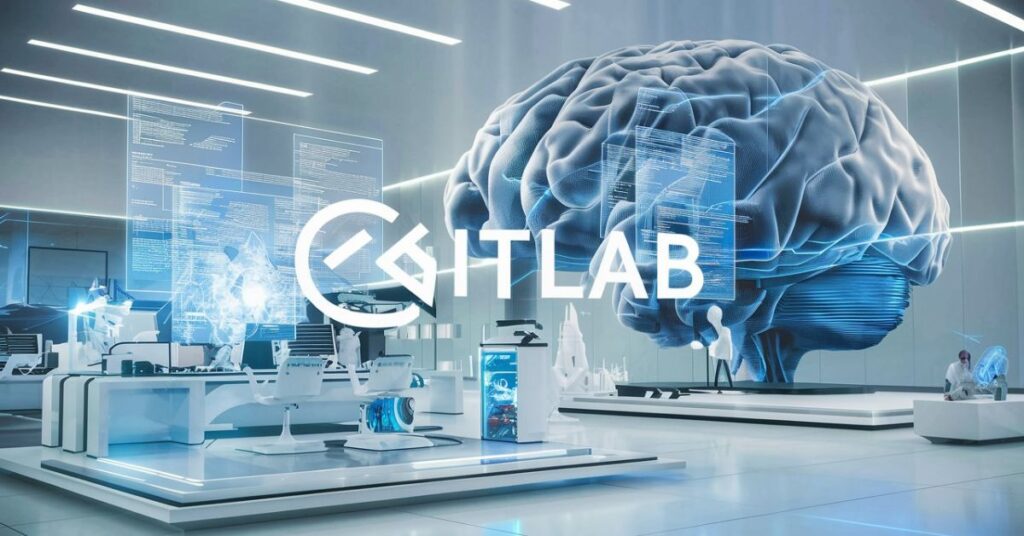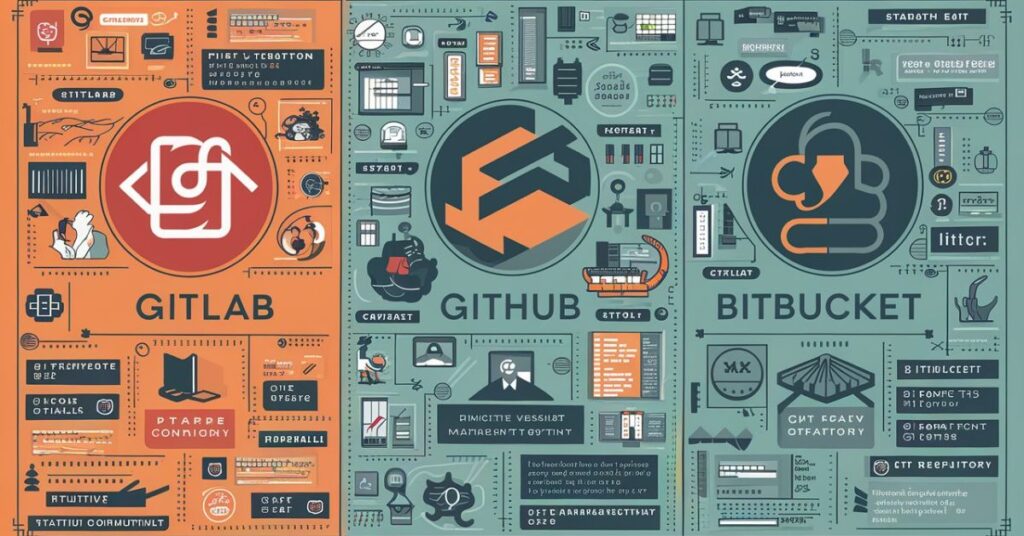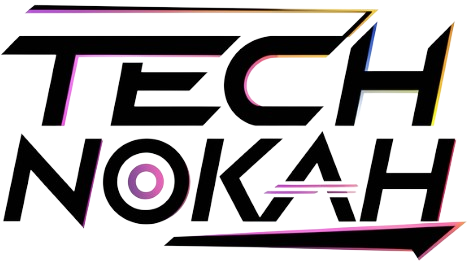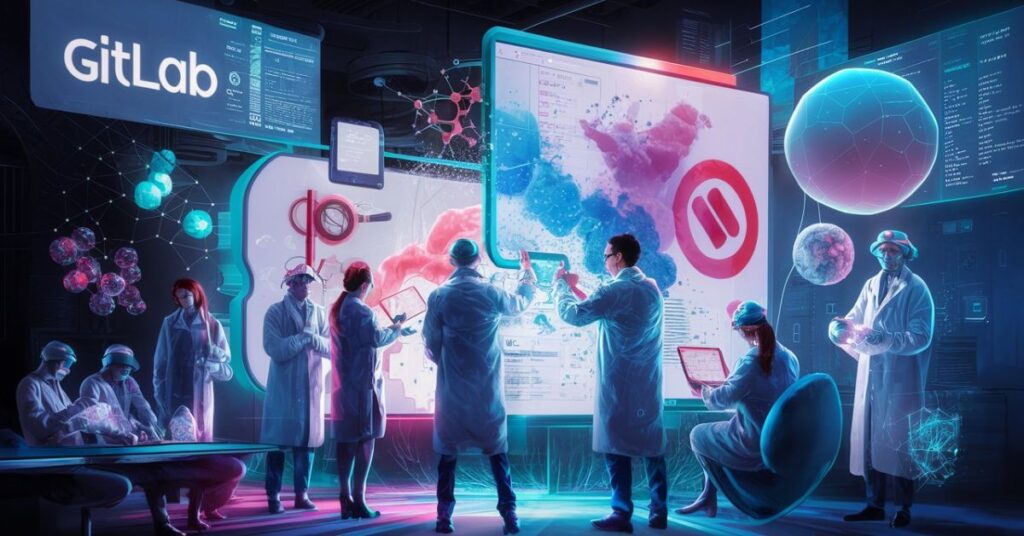In the modern age, technology and science are indispensable drivers of progress, impacting every facet of human existence. Through innovations in communication, industry, and healthcare, they have reshaped the way we live, work, and interact. Advancements in education and environmental sustainability are fostering a more informed and sustainable society. Additionally, space exploration showcases our curiosity and quest for knowledge beyond Earth’s boundaries. Ultimately, the continuous evolution of technology and science holds the promise of a brighter and more interconnected future for humanity.
What Is Science GitLab?
Totally Science GitLab is a platform for collaborative scientific research. It provides tools for version control, collaboration, and sharing of scientific code and data. Researchers can work together efficiently, manage projects, and track changes seamlessly.
The Essence of Totally Science GitLab

The “Totally Science GitLab” sounds like a platform or project related to science and GitLab, a web-based Git repository manager. The essence of such a project likely involves leveraging the collaborative and version control features of GitLab to facilitate scientific research and development. Here’s a breakdown of what the essence of “Totally Science GitLab” might entail:
- Version Control for Research: GitLab provides version control enabling researchers to track changes to their code, data, and documents over time. This ensures transparency, reproducibility, and collaboration within scientific projects.
- Collaborative Workflows: Scientists can collaborate on projects share code datasets and findings and contribute to each other’s work seamlessly using GitLab’s collaboration features. This fosters teamwork and accelerates the pace of scientific discovery.
- Issue Tracking: GitLab’s issue-tracking system allows researchers to manage tasks track bugs suggest enhancements and organize discussions related to their projects. This helps in keeping projects organized and on track.
- Continuous Integration/Continuous Deployment (CI/CD): Integrating CI/CD pipelines into scientific workflows automates testing validation and deployment processes ensuring that changes are thoroughly checked before being merged into the main project branch. This helps maintain the integrity and reliability of scientific software.
- Open Science: GitLab promotes open science by providing tools for sharing code data and results openly with the scientific community. This facilitates collaboration peer review and knowledge dissemination ultimately advancing scientific progress.
- Documentation and Wikis: GitLab’s built-in wikis and documentation features allow researchers to create and maintain project documentation including experimental protocols data dictionaries and user manuals. This ensures that knowledge is well-documented and accessible to project members and the wider scientific community.
- Security and Compliance: GitLab offers robust security features such as access controls authentication and encryption to protect sensitive scientific data and ensure compliance with data protection regulations and research ethics standards.
Also Read This: Geekzilla Radio: Exploring The Nexus Of Geek Culture And Tech Trends
Key Features That Set It Apart
The “Totally Science GitLab” platform may differentiate itself from generic GitLab instances or other scientific collaboration platforms through several key features tailored specifically to the needs of scientific research. Here are some potential features that could set it apart:
- Scientific Workflow Templates: Pre-configured templates for common scientific workflows, such as data preprocessing, analysis, and visualization pipelines, to help researchers quickly set up their projects and adhere to best practices.
- Integration with Scientific Computing Environments: Seamless integration with popular scientific computing environments and tools, such as Jupyter notebooks, RStudio, MATLAB, or Python scientific libraries, allowing researchers to execute code directly within the GitLab environment.
- Data Versioning and Management: Enhanced support for versioning large datasets, including data lineage tracking, data provenance, and efficient storage mechanisms optimized for scientific data types.
- Interactive Data Visualization: Built-in support for interactive data visualization tools, enabling researchers to explore and visualize their data directly within GitLab, facilitating data-driven insights and hypothesis generation.
- Collaborative Experiment Design: Tools for collaborative experiment design and planning, including experiment protocols, sample tracking, and experimental conditions management, to ensure consistency and reproducibility across research projects.
- Research Project Portals: Customizable project portals or dashboards for showcasing research projects, including project summaries, key findings, datasets, and publications, to enhance visibility and collaboration within the scientific community.
The Benefits of Embracing Totally Science GitLab
Embracing “Totally Science GitLab” offers numerous benefits to scientific researchers and organizations, revolutionizing the way scientific research is conducted and accelerating the pace of discovery. Here are some of the key benefits:
- Enhanced Collaboration: By providing a centralized platform for sharing code, data, and findings, Totally Science GitLab facilitates collaboration among researchers, enabling teams to work together seamlessly regardless of geographical location or institutional affiliation.
- Improved Reproducibility: Version control and workflow automation features ensure that research outputs are reproducible and transparent, allowing other researchers to replicate experiments and verify results with confidence.
- Efficient Project Management: Science GitLab’s project management tools, including issue tracking, milestone tracking, and task assignment, help researchers organize and prioritize their work effectively, leading to increased productivity and project success.
- Accelerated Innovation: The collaborative and iterative nature of Totally Science GitLab enables researchers to build upon each other’s work, accelerating the pace of innovation and driving scientific progress forward.
- Community Building: Totally Science GitLab provides opportunities for researchers to engage with the broader scientific community through discussion forums, virtual seminars, and collaborative challenges, fostering networking and knowledge exchange.
- Future-Proofing Research: By embracing modern software development practices and technologies, Totally Science GitLab helps researchers future-proof their projects, ensuring that they remain relevant and sustainable in an increasingly digital and data-driven research landscape.
Getting Started with Totally Science GitLab
Getting started with Totally Science GitLab is an exciting journey that can revolutionize the way you conduct scientific research. Here’s a step-by-step guide to help you get started:
- Sign Up for an Account: If you don’t already have an account on GitLab, you’ll need to sign up. Visit the GitLab website and follow the prompts to create a new account. Make sure to choose a username and password that you’ll remember.
- Explore Totally Science GitLab Features: Take some time to explore the features and capabilities of Totally Science GitLab. Familiarize yourself with version control, project management tools, collaboration features, and any specialized features tailored to scientific research.
- Create Your First Project: Once you’re comfortable with the platform, create your first project. Give your project a descriptive name and choose the appropriate visibility level (public, private, or internal) based on your needs.
- Set Up Project Structure: Define the structure of your project by creating folders for code, data, documentation, and any other resources relevant to your research. Consider using templates or best practices for organizing scientific projects.
- Initialize Repository: Initialize a Git repository for your project and add your files to it. Use Git commands or the GitLab interface to commit your changes and push them to the remote repository hosted on GitLab.
- Invite Collaborators: If you’re working with a team, invite collaborators to join your project. Specify their access levels (developer, maintainer, etc.) based on the level of permissions they need.
- Start Collaborating: Collaborate with your team members by sharing code, data, and findings, and discussing ideas and progress using GitLab’s collaboration tools, such as issues, merge requests, and comments.
Also Read This: GPT66X: Delving Into The Latest AI Tech Advancements
Why Totally Science GitLab Is a Game Changer
Totally Science GitLab is a game changer because it revolutionizes the way scientific research is conducted and shared. By offering a comprehensive platform that integrates version control, project management, collaboration tools, and continuous integration. It streamlines workflows and enhances productivity for research teams. Moreover, its emphasis on open science principles promotes transparency, reproducibility, and collaboration within the scientific community.
With features tailored specifically to the needs of researchers, such as code sharing, issue tracking, and documentation capabilities. Science GitLab empowers scientists to focus more on their research and less on administrative tasks. Overall, it catalyzes accelerating the pace of scientific discovery and facilitating meaningful collaborations that can address complex global challenges.
Login Process
The login process for Totally Science GitLab typically involves the following steps:
- Visit the Website: Open your web browser and navigate to the Totally Science GitLab website.
- Locate the Login Page: Once on the website, find the login page. This is usually accessible from the homepage or a dedicated login section.
- Enter Your Credentials: Enter your username or email address associated with your Totally Science GitLab account, as well as your password.
- Click “Login”: After entering your credentials, click the “Login” button to submit your information.
- Authentication: Depending on the security settings configured for your account, you may be required to complete an additional authentication step. Such as entering a verification code sent to your email or mobile device.
- Access Your Account: Upon successful authentication, you should be logged into your Totally Science GitLab account. Where you can access your projects, collaborate with team members, and manage your research tasks.
GitLab vs. Other Version Control Systems: A Complete Comparison

Below is a comparison table of GitLab, GitHub, Bitbucket, and Git:
| Feature | GitLab | GitHub | Bitbucket | Git |
| Hosting Options | Self-hosted, Cloud-hosted | Cloud-hosted | Cloud-hosted, Self-hosted | N/A (Standalone) |
| Integrated CI/CD | Yes | Yes | Yes | No |
| Issue Tracking | Yes | Yes | Yes | No |
| Collaboration Tools | Yes | Yes | Yes | No |
| DevOps Platform | Yes | No | No | No |
| Community Support | Large and active | Large and active | Active | N/A |
| Integration Ecosystem | Moderate | Extensive | Moderate | N/A |
| Social Features | Limited | Extensive | Limited | N/A |
| Acquired by | N/A | Microsoft | Atlassian | N/A |
| Mercurial Support | No | No | Yes | No |
| Command-Line Interface (CLI) | Yes | Yes | Yes | Yes |
| Graphical User Interface (GUI) | Yes | Yes | Yes | Various options available |
Revolution of Totally Science GitLab
Totally Science GitLab revolutionizes scientific research by transforming collaboration, sharing, and knowledge advancement. It provides a centralized platform for code, data, and findings, fostering unprecedented collaboration. Through emphasis on reproducibility and transparency, it promotes open science practices. Its efficient project management tools streamline workflows, enhancing productivity. Ultimately, Totally Science GitLab embodies collective scientific efforts for innovation and societal challenges.
Origin of Totally Science GitLab
The genesis of Totally Science GitLab stems from the necessity for a specialized platform for scientific research collaboration. Recognizing the inadequacies of traditional GitLab instances in meeting the needs of scientists, the concept arose. Input from researchers and developers shaped its development, incorporating essential features like specialized project templates and data versioning. Totally Science GitLab aims to revolutionize scientific collaboration, speeding up the pace of discovery.
Conclusion
While each version control system offers unique features, GitLab stands out with its comprehensive DevOps platform. GitHub excels in community support and integration, while Bitbucket integrates well with Jira. Git remains a lightweight choice for distributed version control. Consider your project needs and team preferences when selecting a platform.
FAQs about Totally Science GitLab
What is Science GitLab?
Totally Science GitLab is a platform for collaborative research. It integrates version control, issue tracking, and continuous integration.
How does Totally Science GitLab facilitate collaboration?
It provides features such as issue tracking, code review, and project wikis to streamline collaboration among researchers and scientists.
Does Science GitLab support continuous integration?
Yes, Science GitLab includes built-in continuous integration and continuous deployment pipelines, allowing teams to automate testing and deployment processes.
Is Science GitLab suitable for open-source projects?
Totally Science GitLab supports open-source collaboration, offering features for code sharing, issue tracking, and community engagement.
What sets Totally Science GitLab apart from other version control systems?
Totally Science GitLab stands out with its focus on scientific research, providing specialized tools and workflows tailored to the needs of research teams.
Also Read This: Wordle Hint Today Newsweek: Cracking The Code Wordle Hint Unveiled

Explore the world of technology with Tony at TechnoKah.com, where his 7 years of expertise come alive. Dive into insightful articles, expert reviews, and cutting-edge trends. Tony, your trusted guide in the dynamic realm of technology.







